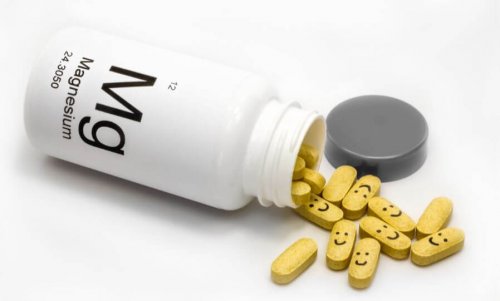Fighting Physical Fatigue with Vitamins and Supplements

When you’re trying to choose which vitamins and supplements to take to fight physical fatigue, you first need to identify the cause.
What’s making you so tired?
- Do you feel confused and sluggish when you’re tired? Folic acid may be your solution.
- Do you have a virus? Vitamin C or zinc can help.
- Are you stressed? Magnesium can be a good choice.
- Are your workouts too intense? Try L-carnitine.
- Do you need a quick solution for your physical fatigue? Caffeine is a good bet.
Below, we have suggested some of the best vitamins and supplements that you can take to help beat your physical fatigue!
Vitamin B12
You can help to prevent physical fatigue with vitamin B12. It’s a water-soluble vitamin that helps both your brain and nervous system to function properly.

Many studies have proven that vitamin B12 offers us benefits for our body. Taking anywhere between 2.5 to 5 mg of vitamin B12 every day can possibly raise energy levels and endurance.
In addition, scientists have also studied the effects of vitamin B12 for people with neuralgia and back pain. There have even been studies on the link between vitamin B12 and cancer.
Vitamin C
Also known as ascorbic acid, here’s another vitamin that’s well-known for fighting physical fatigue. It’s popular for its healing and antioxidant qualities.
Vitamin C can also help to reduce the symptoms of the common cold, as well as helping to boost the efficiency of the immune system, which helps us fight off bacteria and viruses.
After working out, vitamin C can help to reduce muscle pain and can be similar to the muscle pain-relieving effects of vitamin B12.
Magnesium for physical fatigue
Magnesium is a mineral that benefits our blood pressure and cardiovascular system. When our body releases stress hormones after exercising or simply because of everyday life, this release could lead to a magnesium deficiency.

Surprisingly, 15 percent of the western population has insufficient levels of magnesium. When researchers studied the benefits of magnesium supplements in patients who were diagnosed with physical fatigue, they found that 50 percent of them had a magnesium deficiency.
Some patients received 100 mg magnesium intramuscular injections once a week, for a period of seven weeks and the results were impressive. Eighty percent of those patients noticed an improvement in their symptoms.
Folic acid
Also known as vitamin B9, folic acid is a substance that’s produced synthetically and can be taken as a capsule. The human body needs folic acid for certain biological reactions and to keep the mind running smoothly.
If we have a folic acid deficiency, our body starts to show the following symptoms:
- Confusion
- Depression
- Weakened immune system
- Other signs of reduced mental function
As for physical fatigue, a study, performed on different subjects, showed that a 10,000 mg daily dose of folic acid, significantly reduced symptoms.
Caffeine
Caffeine, as we all know, is a potent stimulant for the nervous system. The body can absorb it with no problem and caffeine can also cross over fairly easily into the brain. As a result, several parts of the brain can benefit from the effects of caffeine.

Influence and effects of caffeine on exercise
We can find caffeine in many types of food products, including coffee, tea, chocolate, carbonated drinks, and cakes.
In addition, it’s also the main ingredient in many sports supplements. It can alter the body’s heartbeat, metabolic and respiratory rate.
Caffeine and its temporary energy boost can also help to improve physical and mental functions. Some of the most notable benefits of caffeine are:
- Building endurance
- Improving reaction time
- Sharpening mental alertness to reduce fatigue
Summing up, choosing the right vitamins and supplements to beat physical fatigue is important. As we’ve read today, we have a wide variety of options at our disposal. Our choice will ultimately depend on each of our individual needs.
When you’re trying to choose which vitamins and supplements to take to fight physical fatigue, you first need to identify the cause.
What’s making you so tired?
- Do you feel confused and sluggish when you’re tired? Folic acid may be your solution.
- Do you have a virus? Vitamin C or zinc can help.
- Are you stressed? Magnesium can be a good choice.
- Are your workouts too intense? Try L-carnitine.
- Do you need a quick solution for your physical fatigue? Caffeine is a good bet.
Below, we have suggested some of the best vitamins and supplements that you can take to help beat your physical fatigue!
Vitamin B12
You can help to prevent physical fatigue with vitamin B12. It’s a water-soluble vitamin that helps both your brain and nervous system to function properly.

Many studies have proven that vitamin B12 offers us benefits for our body. Taking anywhere between 2.5 to 5 mg of vitamin B12 every day can possibly raise energy levels and endurance.
In addition, scientists have also studied the effects of vitamin B12 for people with neuralgia and back pain. There have even been studies on the link between vitamin B12 and cancer.
Vitamin C
Also known as ascorbic acid, here’s another vitamin that’s well-known for fighting physical fatigue. It’s popular for its healing and antioxidant qualities.
Vitamin C can also help to reduce the symptoms of the common cold, as well as helping to boost the efficiency of the immune system, which helps us fight off bacteria and viruses.
After working out, vitamin C can help to reduce muscle pain and can be similar to the muscle pain-relieving effects of vitamin B12.
Magnesium for physical fatigue
Magnesium is a mineral that benefits our blood pressure and cardiovascular system. When our body releases stress hormones after exercising or simply because of everyday life, this release could lead to a magnesium deficiency.

Surprisingly, 15 percent of the western population has insufficient levels of magnesium. When researchers studied the benefits of magnesium supplements in patients who were diagnosed with physical fatigue, they found that 50 percent of them had a magnesium deficiency.
Some patients received 100 mg magnesium intramuscular injections once a week, for a period of seven weeks and the results were impressive. Eighty percent of those patients noticed an improvement in their symptoms.
Folic acid
Also known as vitamin B9, folic acid is a substance that’s produced synthetically and can be taken as a capsule. The human body needs folic acid for certain biological reactions and to keep the mind running smoothly.
If we have a folic acid deficiency, our body starts to show the following symptoms:
- Confusion
- Depression
- Weakened immune system
- Other signs of reduced mental function
As for physical fatigue, a study, performed on different subjects, showed that a 10,000 mg daily dose of folic acid, significantly reduced symptoms.
Caffeine
Caffeine, as we all know, is a potent stimulant for the nervous system. The body can absorb it with no problem and caffeine can also cross over fairly easily into the brain. As a result, several parts of the brain can benefit from the effects of caffeine.

Influence and effects of caffeine on exercise
We can find caffeine in many types of food products, including coffee, tea, chocolate, carbonated drinks, and cakes.
In addition, it’s also the main ingredient in many sports supplements. It can alter the body’s heartbeat, metabolic and respiratory rate.
Caffeine and its temporary energy boost can also help to improve physical and mental functions. Some of the most notable benefits of caffeine are:
- Building endurance
- Improving reaction time
- Sharpening mental alertness to reduce fatigue
Summing up, choosing the right vitamins and supplements to beat physical fatigue is important. As we’ve read today, we have a wide variety of options at our disposal. Our choice will ultimately depend on each of our individual needs.
This text is provided for informational purposes only and does not replace consultation with a professional. If in doubt, consult your specialist.








